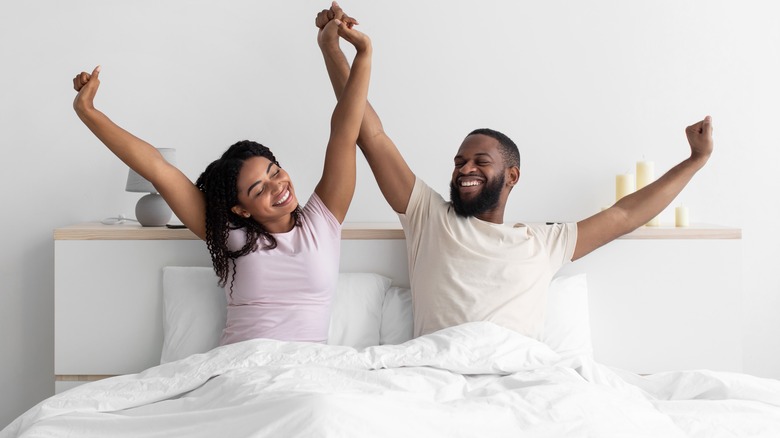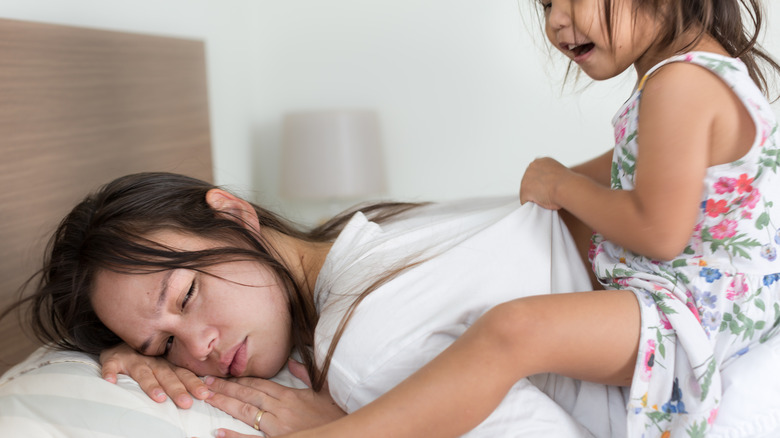Do Adults Who Share Their Beds With A Partner Really Get Better Sleep?
When it comes to boosting our quality of sleep, there are numerous strategies one can implement to get a better night's rest. From reading to meditation, it's clear that sleep can be influenced by what we do before bed, but what about who we snooze with in bed?
A 2020 study published in Frontiers in Psychiatry found that those who slept alongside their significant others experienced fewer sleep disturbances throughout the night and received up to 10% more rapid eye movement (REM) sleep than those who slept solo. Based on these findings, it seems that co-sleeping has some significant health benefits to offer, but not just any partner will do.
Researchers in a new study published in Sleep examined how sharing a bed impacted the quality of rest and mental health of more than 1,000 adult participants. Between a significant other, child, pet, alternate family member, or no partner at all, sleeping with a significant other (defined by researchers as a partner or spouse) yielded the greatest health benefits.
How sleep quality varies between partners
Study findings revealed that those who slept alongside a partner "most nights" were able to fall asleep faster, received more sleep, and were at a lower risk for sleep apnea than those who said they "never" slept with a partner. Partner-sleeping was also found to be linked with higher rates of overall life satisfaction, strong feelings of social support, and lower rates of anxiety or depression. Solo-sleeping appeared to have the opposite effect, revealing increased rates of depression and less overall satisfaction with life. Participants who shared a bed with their child reported feeling more stressed and experienced greater degrees of insomnia. Similarly, those who slept with a family member reported a greater risk for sleep apnea.
Experts stress that these findings do not prove universal for all, as some past research has shown sleeping with a partner to be associated with poorer quality of sleep (per HealthDay). In addition, sleep quality may also vary based on how safe and satisfied one feels in the relationship. The more trust and security experienced between partners, the more positively it may influence sleep. "Over time, as you build that trust, then you'll sleep better," states Dr. Rafael Pelayo, a clinical professor in sleep medicine at Stanford University who was unaffiliated with the study, per HealthDay. "And you have many patients who tell you, and people in general, that they don't sleep as well when their partner is away."


